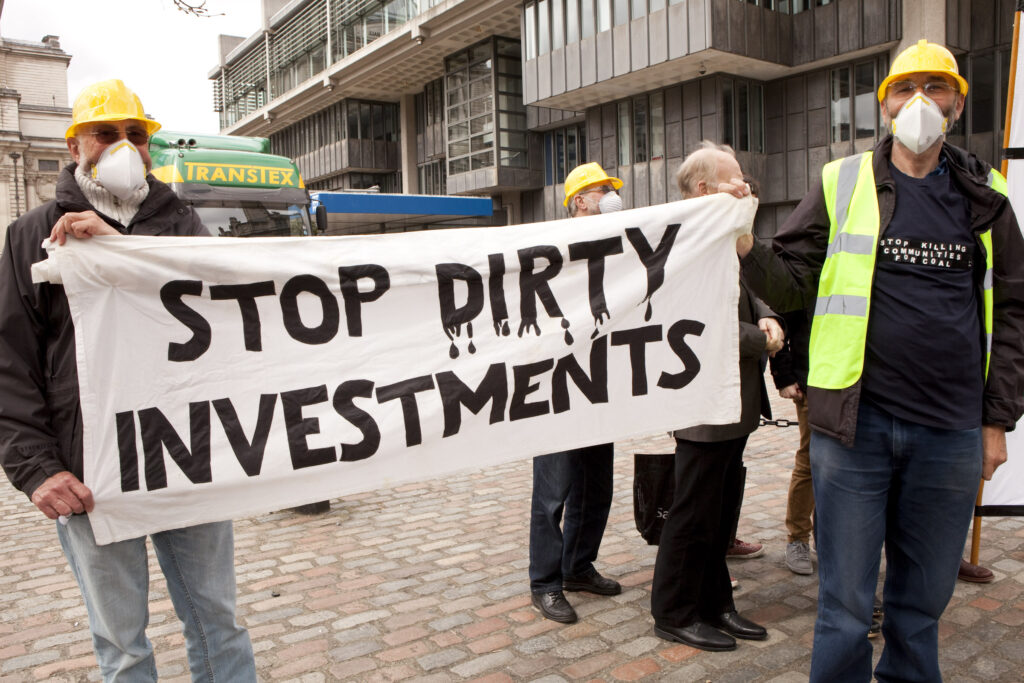25 April, 2013IndustriALL Global Union joined a diverse group of civil society activists, NGOs and community-based organizations in London to protest against Anglo American and Rio Tinto on the occasion of their Annual General Meetings on 18 and 19 April 2013 respectively.
The protests were held under the banner; “stories of resistance” and were organized and coordinated by the London Mining Network. The “stories of resistance” were echoed by:
- representatives from communities affected by Anglo American and others at the Cerrejón coal mine in Colombia, speaking about forced community removals and the alliance between farming communities and mine workers,
- a national union of mineworkers' representative from South Africa NUM, speaking about silicosis and the legal action against Anglo American,
- a representative of Oyu Tolgoi Watch in Mongolia, speaking about the impacts on water and traditional livelihoods of Rio Tinto's operations there,
- a representative of indigenous people affected by Rio Tinto's operations in Arizona, and
- representatives of the West Papuan independence movement, speaking about the Grasberg mine.
These stories of resistance, of Indigenous rights, workers’ rights, human rights in general, and the health of the environment, struggled to be heard inside the halls of the annual general meeting as they were drowned by both board members and individual shareholders’ concerns for a return on shareholder investments on profit.
One shareholder, though, raised a concern as to why last year’s Greenwash Gold Campaign, which was voted by the public and which was won by Rio Tinto did not appear in the company’s report. The chairman of Rio Tinto, Jan du Plessis, replied that he had no intention of publicizing the Greenwash Gold Campaign in the company’s report.
Glen Mpufane of IndustriALL Global Union asked about the company’s conflictive relations with trade unions, noting particularly the lockout of workers at the Alma smelter in Quebec, Canada, in 2012, and if the company was concerned about its anti-union image.
Sam Walsh replied that the Alma smelter dispute that went on during the first half of 2012 was about remuneration and how to do business, how to improve productivity and the viability of the smelter. He said that the company is not anti-union, that it respects the right of workers to join or not to join unions, {but} that that its overriding concern was to maintain direct contact with its employees.


